This section endeavors to bring to you the real life stories of service that have led to social transformation and the many unsung heroes pioneering and bringing about this change.

Dr Hedgewar Hospital: How a team of young doctors dedicated themselves to providing affordable healthcare
We are yet to fully grasp and make sense of the first pandemic we have seen in our lives. Nevertheless, one thing stands more striking than ever: every day, countless health care workers enter a warzone at work; they don’t know if the virus will consume them, nor do they know if their families will stay safe. Despite such constant threat to their lives, the majority of doctors, nurses, and EMTs are working overtime to make sure their communities can heal. Most of these men and women have one thing in common: they genuinely care about people and hold true
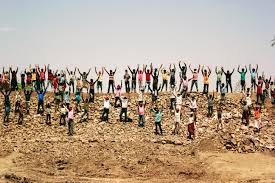
Shivaganga: How an organization is empowering rural communities to prosper and preserve their heritage
Widespread famine, long, barren and infertile fields, extreme poverty and malnourished children.These are the characteristics attributed to rural India. Rural India has had a negative image attached to it since the British left India in 1947, or perhaps much earlier when India was under British colonial rule. One of the areas that suffered greatly because of the British raj was the Jhabua-Alirajpur area in Madhya Pradesh. However, even after Independence, the colonial laws in India continued leading to many rampant poverty and other related issues. Today Alirajpur district is one of the poorest districts in India. One of the organizations trying
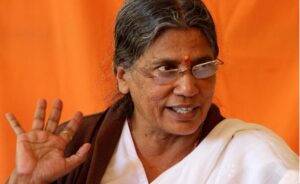
How CORD is following in the footsteps of Swami Chinmayananda in exemplary service to the society
The Chinmaya Organization for Rural Development (CORD) has its roots in the Chinmaya Rural Primary Health Care and Training Center in 1985, founded by Pujya Swami Chinmayananda ji. While providing health services in remote villages of Southern India, volunteers realized that these villages had many problems outside of healthcare, such as poverty, illiteracy, poor basic facilities and various social problems. In order to address these challenges, the Chinmayananda Rural Primary Health Care Center was expanded to the Chinmaya Organization of Rural Development. Since then the organization has grown many folds and has been providing yeoman service in empowering rural India.
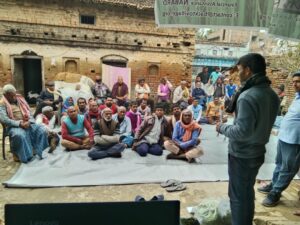
Back To Village: How an IITian dedicated himself to empower farmers
From an IIT qualifier to a changemaker, Manish Kumar has set out to make a difference in India’s rising villages. In 2016 Kumar started Back to Village, a local and non profit organization, working for the growth of rural villages and ensuring proper practices and easier accessibility towards the farming communities. Today, this small initiative is changing the lives of farmers, making a name on a national level and working to fulfill the basic needs and development of farmers. Kumar in an interview mentioned that “the only aim was to do something noteworthy for the nation. All the problems being
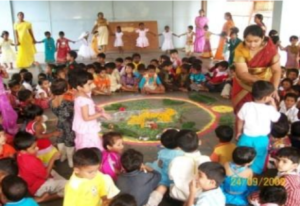
‘Swa’-Roopwardhinee: Manifesting the true potential within children through education
Swami Vivekananda said “Education is the manifestation of perfection already within.” It was based on the ancient Hindu teaching encapsulated in another of his sayings “Each soul is potentially divine” that there is divine and infinite potential within every person. ‘Swa’-Roopawardhinee, an organization in Pune, India, has made this ancient teaching an integral part of their work, both in spirit as well as literally too. The name of the organization ‘Swa’-Roopawardhinee in Sanskrit means to nurture or manifest one’s true self (Swa-roopa). ‘Swa’-Roopawardhinee or ‘wardhinee’ in short tries to bring out the best among poor children, especially prodigies within them.
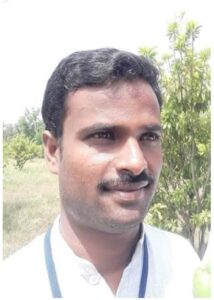
An Engineer To A Full Time Social Worker
“In the early years of volunteering for Youth For Sewa, I came to the realization that the kind of life I live is a very cozy and comfortable life. I have a home, I work in a plush office but the ground reality is very different. There are people who struggle to have decent clothing. Even books to read and write are not available. This is what made me think that I have to get out of this comfortable existence and do something for our society.” Who is Ashwin Busare? Ashwin Busare is originally from Gulbarga, a small town near
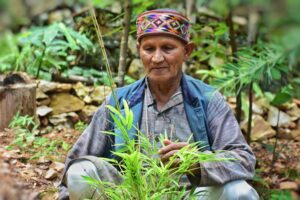
Barren to Lush
Greenery sprouts from every nook and cranny. A glimmering stream of water flows by, complementing the chatter of birds. The fragrance of vibrant blooms wanders the woods. In the distance, roaring engines destroy this beautiful world. Every day, 200,000 acres of forest are cleared. That is approximately 55,600 trees being cut down each minute! Deforestation is a huge concern today. Elimination of forests and habitats is the most common cause of extinction around the globe. The government appears to be unconcerned about this, but individuals are still combating deforestation! Jagat Singh Chaudhary Jungli, an ex-BSF soldier from Uttarakhand, has been
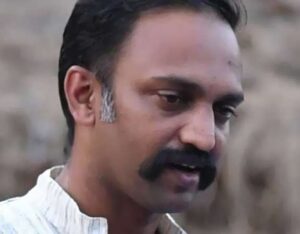
The Voice of Underprivileged Tribals In India
When Indians became slaves in their own house Imagine a stranger coming into your house and then telling you what to do such as where to sit and where not to eat. This is what Indians faced under British colonial rule. The tribals of India were possibly the worst hit. The British passed the Second Forest Act in 1878. Under this law, the Imperial Legislative Council, the legislature for British India, divided the forests of India into three parts, namely Reserved, Protected, and Village forests. Reserved parts were full of rich natural resources and also the parts from where the
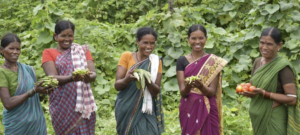
Ekalavya Foundation: When Sustainable Development Of Villages Becomes A Mission
Imagine a barren wasteland with dying crops, dry wells with water insufficient to feed an ant, and houses with gaping holes that provide barely any shelter. Now imagine a luscious landscape with wells overflowing with clean water, animals that graze around thriving crops enough to feed generations of families, and houses that can withstand thunderstorms and hold the happiest hearts inside. The first is the situation of many villages in India and second is what could be their potential. And what separates them often could be the dedicated work of social transformers. We had the opportunity to interview one such
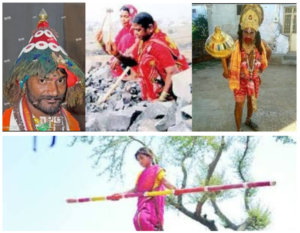
Bhatke Vimukta Vikas Pratishthan: Empowering Nomadic Communities In India
For centuries, ancient tribes, traders, hunters, and artisans have contributed their skills and have been an important part of Indian society. By sharing their expertise and invaluable resources, these individuals served as the backbone of village life in India. From forging metal, making wigs from reused hairs, to providing blueprint designs for the construction of temples, these people filled niche voids within Indian society. But that was before the twin blows they faced: British colonialism marginalized and stigmatized their way of life and modern technology disrupted their source of livelihood by making their traditional skills obsolete. The loss of their
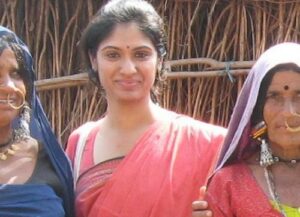
That Time of the Month: An Interview With A Menstrual Hygiene Educator
(This article is based on the research and interview conducted by two Indian-American high-schoolers as part of the Dharma Internship Program 2020. The authors acknowledge the valuable suggestions and help from their mentors and program coordinator) The day I had my first period, I was nervous. A sense of happiness, sadness and confusion all ran through my body. I frantically told my mother what had happened to me. She calmed me down and let me know it was nothing to be afraid of, but something to be happy about. Then we told all our family members, who also rejoiced when
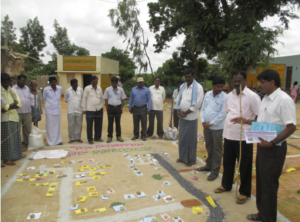
How One Man Helped Create an Organization that Revolutionized the Lives of Thousands of Villagers
In 2000, Suresh Poshettyhalli founded The Vahini Development Society, an NGO that strives to improve the lives of those from marginalized communities. What started as a small local operation, has now become a deeply impactful organization, touching the lives of over 40,000 individuals. How? Read on to find out! M.P. Lakshminarayana Reddy was an ordinary farmer in Karnataka making an average farmer’s income when he met Suresh Poshettyhalli. Under the guidance of Suresh Poshettyhalli and his organization, The Vahini Development Society, Lakshminarayana was able to nearly double his yearly income. How did he do this? During his meeting with the
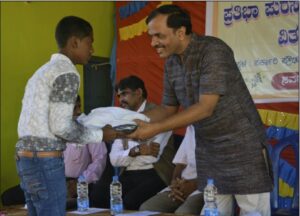
Youth For Seva: How Volunteering Was Transformed Into A Mass Movement
Meet Neha [name changed], a young schoolgirl who starts every morning working as a maid in two different households. Only after that is she able to attend school. For Neha’s family, school is not the first priority because they need the extra 1,000 rupees to support themselves every month. One day, Neha heard about a tutoring program at her school run by volunteers from an organization called Youth For Seva (YFS). Neha worked for weeks, revising her homework and studying for her exams with the help of the volunteers of this organization. That spring, Neha was able to pass her
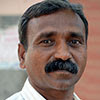
How one man united the community and transformed his tribal village and many more
Climate change and deforestation are very critical issues in our world currently. Billions of trees get cut down each year. This is an even graver issue in remote or rural villages whose only resource for their economy and agriculture are their forests. Such was the case in Baripada, a small village in Maharashtra, India, close to the border of Gujarat. There are only two rickshaws that have the ability to take you there, no buses. There is only one school that children can attend up till fourth grade. The people of Baripada did not farm and there were very few

How One Man Helped Create an Organization that Revolutionized the Lives of Thousands of Villagers
In 2000, Suresh Poshettyhalli founded The Vahini Development Society, an NGO that strives to improve the lives of those from marginalized communities. What started as a small local operation, has now become a deeply impactful organization, touching the lives of over 40,000 individuals. How? Read on to find out! M.P. Lakshminarayana Reddy was an ordinary farmer in Karnataka making an average farmer’s income when he met Suresh Poshettyhalli. Under the guidance of Suresh Poshettyhalli and his organization, The Vahini Development Society, Lakshminarayana was able to nearly double his yearly income. How did he do this? During his meeting with
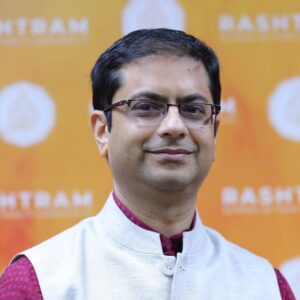
Rashtram School: Applying Ancient Knowledge In Creating Modern Leaders
The legendary American Football coach Vince Lombardi once said “Leaders aren’t born, they are made. And they are made just like anything else, through hard work”. ‘Rashtram School of Public Leadership’ has set out to do this very thing – to work hard and create leaders that will lead the society. It was founded in 2019 by the ‘Vision India Foundation’ with the aim of building leaders who would be adept in ancient Indian wisdom and traditional practices and who could take up the world’s contemporary problems. We spoke to the Vice President of the Rashtram school, Shobhit Mathur, on
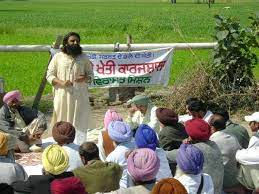
How a young journalist brought about an organic farming revolution in Punjab
“Live life like poetry” he told us “People write many poems in a lifetime, but I want to live my life like a poem”. It was 1996. A young reporter in Delhi had a calling. He decided to move back to his home state, Punjab. Punjab, is known as the breadbasket of India, especially after the Green revolution of the 1960s. The revolution itself was hailed by one and all for the progress in agriculture that it had made and its role in bringing food security in India. But soon a myriad of problems had set in. Around the 1980s,
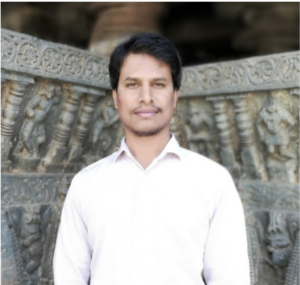
A Technology Professional Who Returned To His Village To Bridge The Gap in Education
Ten years ago, rural students in some remote villages in Karnataka had little chance to pursue studies at the university level or leave their traditional village jobs. Year after year, these students would half-heartedly study feeling unmotivated about getting the opportunity to chase their potential. Those who studied vigorously, in an attempt to secure a different future, would only make up a small percentage of all Indian university students. While a lot more needs to be done to make higher education accessible to these students, there has been an admirable endeavor by some social changemakers to address this gap. Today
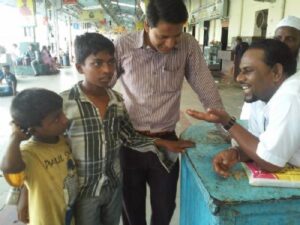
The man who reunites runaway children with their families
Imagine the lively scene at an Indian train station with thousands of passengers, the loud signals of trains coming and going, the numerous vendors selling their stuff from chai to fruit salads and newspapers. In all of this hustle and bustle, we may miss the many children who have made this station their home. Yes, it is not uncommon for many runaway children in India to choose these railway stations as their home away from home. It may indeed be depressing to imagine the lives that these children may be living. But it’s not this staggering challenge that we are
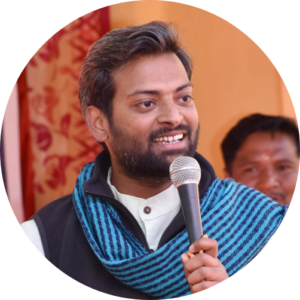
How a youth inspired by a natural calamity dedicated himself to the upliftment of the rural Uttarakhand
It was June 16th, 2013; many villagers in Uttarakhand were going about their day, meeting with family and friends, making food, cleaning, and spending time outdoors. Then all of a sudden, devastating flash flood struck Uttarakhand. 197 people lost their lives due to the destructive flood and thousands more were injured. Entire villages were wiped out including homes, schools, offices and hospitals. What was lost was not just lives or livelihood but the hope for the future. It was in the aftermath of this calamity that a non profit named Sewa International (or Sewa in short) started working in Uttarakhand.
